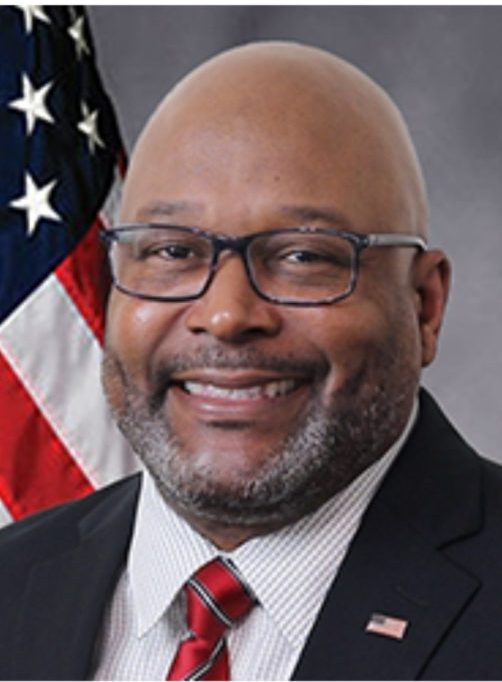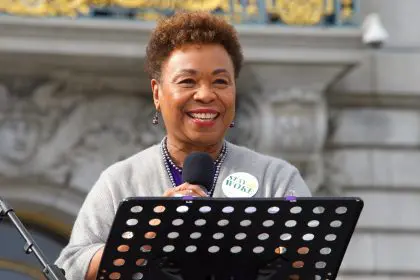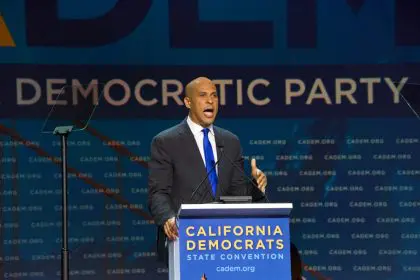On May 28, 2025, Camilla, Ga., Mayor Kelvin Owens, Interim City Manager Cheryl Ford, and former Election Superintendent Rhunette Williford, were all arrested on charges of election fraud and conspiracy. This unprecedented move represents more than a local political dispute — it marks the latest chapter in southwest Georgia’s 157-year struggle against systemic voter suppression and judicial complicity in corporate and political power structures. To fully grasp the gravity of this moment, we must confront Camilla’s bloodstained history of racial terrorism and analyze these charges through the prism of federal voting rights law, Georgia’s election code, and a disturbing national pattern of weaponizing legal systems against Black electoral empowerment
It was only a few years ago in 2018 that the City of Camilla, which is located in deep South Georgia, removed the fence that separated Black and White residents in the city-owned cemetery. The city, at that time, also did not employ one Black police officer, even though the city is majority African-American.
Official press release from Dewayne Burley, Mayor Pro Tem:
Today, Mayor Kelvin Owens, Interim City Manager Cheryl Ford, and former Election Superintendent Rhunette Williford were arrested and charged with election fraud and conspiracy to commit election interference. The arrests have shocked the community and raised serious concerns about the ongoing targeting of public officials who upheld the integrity of our local electoral process.
We have been informed that none of the three officials will be allowed to appear before a judge until Monday at 9:00 AM, a delay for which Magistrate Judge Bubba Lamb has not provided clear justification.
These arrests appear politically motivated and retaliatory. Central to the controversy is the candidacy of Mr. Venterra Pollard, who was deemed qualified to run for office by both Mrs. Williford and Ms. Ford, despite Judge Gary McCorvey initially ordering Mr. Pollard to remove his name from the ballot. When that effort failed, he directed the Election Superintendent to forcibly remove Pollard from the race.
After Mrs. Williford refused to comply with what many believe to be an unlawful order, Judge McCorvey recused himself, and Judge McClain was assigned to the case. Judge McClain escalated pressure by threatening arrest if Mr. Pollard was not removed. Armed deputies were sent by the local sheriff to serve Mrs. Williford with this directive — an act widely viewed as intimidation.
On Nov. 4, 2024, both Rhunette Williford and Cheryl Ford resigned their positions, effective immediately, citing the untenable pressure and threats. On the same date, the City Council voted—under the advice of the city attorney and guidance from the Secretary of State’s Office—not to proceed with the election to avoid incurring a fine due to the absence of a certified Election Superintendent.
This situation represents not only a potential abuse of judicial authority but also a dangerous precedent where election officials are criminalized for ensuring fair access to the democratic process. We call for transparency, immediate answers regarding the judicial delays, and a full investigation into what appears to be a politically driven campaign to silence lawful election officials.
We stand by Mayor Owen, Mrs. Ford, and Mrs. Williford, and demand due process and justice without bias or intimidation.”
Reconstruction’s unfinished business
The specter of Sept. 19, 1868, looms large over this case. On that day, White vigilantes led by Sheriff Mumford Poore massacred at least 15 Black voters and wounded 40 others at Camilla’s courthouse square — the very seat of justice now being used to prosecute today’s election officials. This orchestrated violence, designed to prevent newly enfranchised Black Georgians from electing their chosen representatives, succeeded in disenfranchising southwest Georgia’s Black majority for generations. The massacre’s aftermath saw disgruntled citizens patrolling rural areas to threaten Black families with death if they dared vote, a tactic chillingly echoed in 2024 when armed deputies delivered judicial orders to Williford’s home, according to a press release.
This historical continuum of voter suppression reemerged during the Civil Rights Era when Camilla police beat pregnant activist Marion King unconscious during a 1962 voter registration protest, causing her to miscarry. Now, the same courthouse that sanctioned 19th-century massacres and 20th-century brutality hosts proceedings that could criminalize officials for protecting ballot access — a stark reminder of how institutional power structures persist despite superficial legal reforms.
Legal theater: Analyzing Georgia’s election code through historical context
The charges against Mayor Owens, Ford, and Williford ostensibly stem from Georgia Code §21-2-566, which prohibits election interference through threats, unauthorized ballot handling, or poll obstruction. However, the application of this statute raises constitutional concerns under 52 U.S.C. §10307, which explicitly bars intimidation of election officials and voters. The officials’ alleged “crime” appears to be their refusal to comply with McCorvey’s order to remove Pollard from the ballot — an order potentially violating both the First Amendment’s freedom of association, the Fourteenth Amendment’s equal protection clause and other statutory elements.
This selective prosecution mirrors Reconstruction-era abuses of legal systems to suppress Black political participation. In 1868, white legislators weaponized bogus “election fraud” claims to expel Black lawmakers from the Georgia General Assembly — the same body that now oversees significant election administration rules and laws. The current charges eerily parallel the 1871 Colfax Massacre prosecutions, where federal officials charged Black voters with “insurrection” for defending themselves against attacks.
National patterns of judicial overreach and voter suppression
Camilla’s crisis reflects a dangerous national trend of judicial interference in election administration. While the 2023 Fulton County RICO indictments targeted overt election deniers, Camilla’s situation inverts this dynamic. Here, officials upholding electoral integrity face charges, while those attempting potentially unlawful voter suppression wield judicial power. This dichotomy exposes the double standard in election-related prosecutions — a pattern evident in:
- Arizona’s Cochise County (2022): Republican supervisors faced felony charges for refusing to certify election results, unlike Camilla officials penalized for preserving certification integrity.
- Colorado’s Mesa County (2024): Election official Tina Peters received felony convictions for conspiratorial election machine tampering, contrasting with Camilla’s officials being prosecuted for preventing ballot access interference.
- Michigan’s Adams Township (2024): Charges against officials who illegally accessed voting systems highlight how Camilla’s case flips the script — punishing those who protected system integrity.
These cases collectively demonstrate how election-related charges increasingly serve as political tools rather than neutral law enforcement — a trend exacerbated by the proposed Judicial Relief Clarification Act of 2025, which could expand judges’ power to issue sweeping electoral injunctions.
The ghost of Jim Crow
The forced resignations of Williford and Ford under threat of arrest, which is cited in the official press release from the current Mayor Pro Tem of Camilla, GA Dewayne Burley, resurrects the “Mississippi Plan” tactics of 1875, where White Democrats used economic coercion and violence to drive Black officials from office. Their replacements’ cancellation of the November 2024 special election — ostensibly to avoid fines — creates a modern analogue to Reconstruction-era voter purges, disproportionately disenfranchising Camilla’s Black majority.
Furthermore, Magistrate Judge “Bubba” Lamb’s decision to delay the officials’ first court appearance until June 3 seems to violate Georgia’s Uniform Court Rule 7.1 requiring prompt hearings, while potentially contravening 52 U.S.C. §10307(b)’s prohibition on intimidating election officials through legal delays. This procedural abuse mirrors 19th-century “legal lynchings” where Black defendants faced rushed trials or indefinite detentions.
Toward a federal remedy: Reconstructing voting rights protections
The Department of Justice must invoke its authority under 52 U.S.C. §10308 to monitor these proceedings and consider federal civil rights charges against public officials engaged in voter intimidation. The Voting Rights Act’s Section 3(c) “bail-in” provision could subject Mitchell County to federal election oversight given its history of rights violations—a necessary step given Camilla’s failure to reconcile with its past.
Moreover, Georgia’s legislature should revisit Senate Bill 202’s problematic provisions in light of Camilla’s crisis. While the 2021 law created new election police powers, it lacks safeguards against precisely the type of judicial-electoral collusion now unfolding.
Conclusion: Camilla as Democracy’s crucible
As a scholar of both election law and African American history, I recognize Camilla’s struggle as a microcosm of America’s unhealed racial wounds. From the 1868 massacre to Marion King’s beating to today’s prosecutions, this community’s story reveals how white power structures adapt suppression tactics across centuries — replacing mob violence with political maneuvering, and night riders with armed deputies.
The international community watches as Georgia again becomes ground zero for democracy’s defense. Will we permit Camilla’s courthouses — once stained with Black voters’ blood—to become tools of modern disenfranchisement? Or will we finally fulfill Reconstruction’s promise by shielding election officials from retaliation and ensuring every citizen’s vote counts without coercion?
The answer will determine not just Camilla’s future, but American democracy’s viability in this precarious age. History’s gaze weighs heavily upon us all.
Written By: Rashad Richey, PhD, EdD, MBA
Dr. Rashad Richey is an Emmy-nominated political analyst, university professor, and President of Rolling Out. He also hosts the award-winning daily news show, ‘Indisputable with Dr. Rashad Richey’ on the TYT Network and serves as Managing Partner for the Law Office of Richey & Wilson, also known as The Fairness Firm, LLP

















